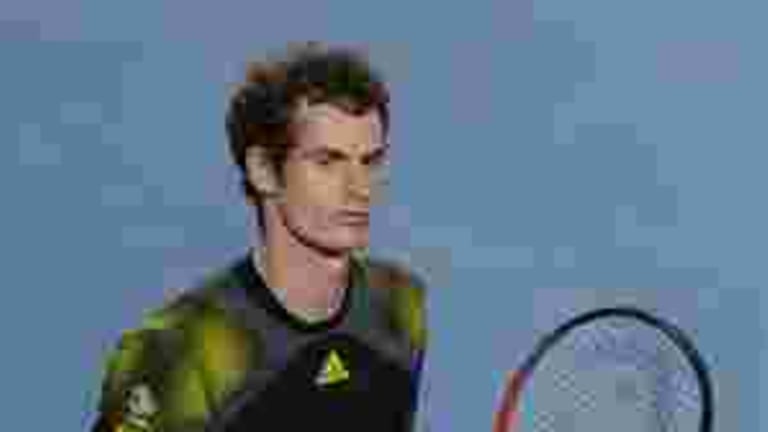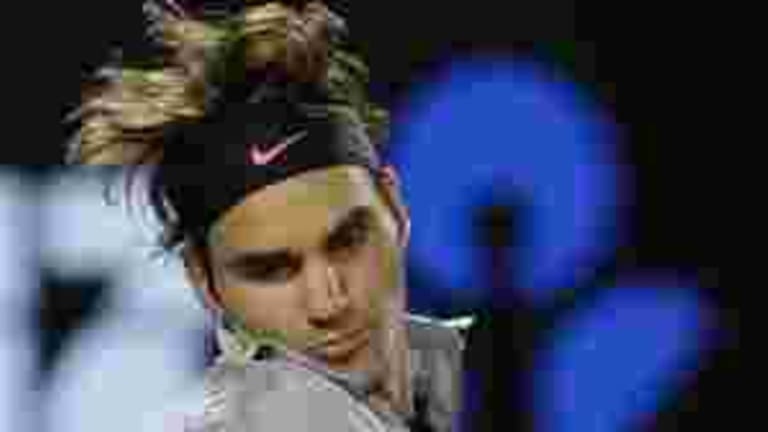MELBOURNE—At around 7:15 P.M. Friday, a few minutes before Roger Federer followed Andy Murray down from the locker room and onto the court, it looked like Rod Laver Arena had been been given an upgrade. Compared to earlier evenings here, the light was more atmospheric, the temperature was more comfortable, the crowd was better looking, the clothes were sharper, the VIPs were actually famous. Greg Norman was here, and the stadium's namesake sat in the front row with a full complement of legends surrounding him. A few rows back was the obligatory celebrity tennis fanatic. This time, though, it wasn’t Anna Wintour or Gavin Rossdale or the Prince of Wales who had jetted in to pay homage to the Maestro. It was American actor Kevin Spacey, who is a....Murray fan? Here was a sign, if anyone needed it, that the guard was changing in men’s tennis, right? The groupies are always the first to know.
“Generational shift” may be the storyline that comes out of the 25-year-old Murray’s 6-4, 6-7 (5), 6-3, 6-7 (2), 6-2 win over the 31-year-old Federer in the semifinals tonight. I agree that it's possible, but mainly from the Murray side. Even more so than his Olympic and U.S. Open wins, in this match it felt like we were seeing Muzz come into his own and play the type of tennis—varied, but with a core of aggression—that he’s been hinting at and working toward since he was a teenager.
On the Federer side, the verdict is less clear. On the one hand, he’s supposedly been on the wrong side of every changing of the guard since he lost to Rafael Nadal in the 2008 Wimbledon final, yet Federer was still there this evening, in the semis of the Australian Open, running down balls that few other players of any age could catch. On the other hand, he was decisively out-served by his younger opponent; Murray himself said, “the serve is normally the first to go when guys get to the end of their career.” Federer also went away completely in the final set, and there were moments when he looked like an aging legend hanging on by his fingernails, relying on desperation gets and clutch tiebreaker play.
Those fingernails proved amazingly resilient, though, especially at the climactic end of the fourth set, when Murray served for the match and looked ready to take his place in the final. Federer, with his back to the wall, barked and cursed at Murray; see him yell "You f---in' stopped!" at Muzz here, after Murray hesitated on a close call in the middle of a point. More imporant, Federer spun and dove for some of the most flatly amazing returns and retrievals in a career that has included thousands of them. He broke Murray at 5-6 and rolled through the following tiebreaker.
Asked what Federer had yelled at him before he broke his serve, Murray said, “It's not relevant. It didn’t rattle me. I think he raised his game ... Sometimes guys need to get emotion into the match. It’s something that happens [in a] one-on-one sort of individual combat.”
Federer, the old lion, had roared, and it was a fearsome sight. But that wasn’t a level he could sustain for an entire set, let alone a match. Reality, in the form of Murray’s methodically superior play, set in again in the fifth.


